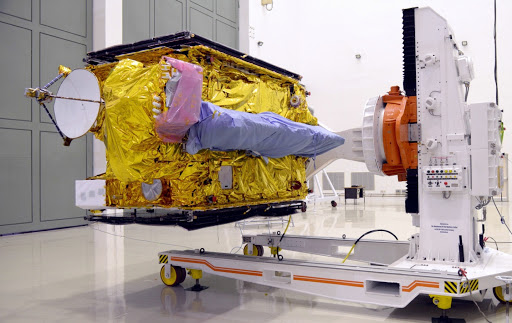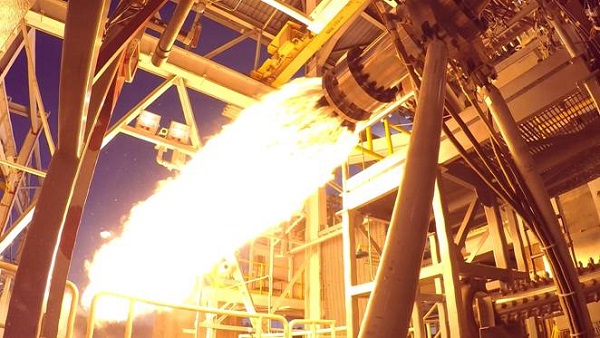GSAT – 6
GSAT-6 is the twenty
fifth geostationary communication satellite of India built by ISRO and
twelfth in the GSAT series. Five of GSAT-6's predecessors were launched by GSLV
during 2001, 2003, 2004, 2007 and 2014.
GSAT-6 Satellite provides communication through S-band payload with five spot beams covering whole India for user links and C-band with one beam. One of the advanced features of GSAT-6 satellite is its S-Band antenna of 6 m diameter. This is the largest satellite antenna realised by ISRO. This antenna is utilised for five spot beams over the Indian main land. The spot beams exploit the frequency reuse scheme to increase frequency spectrum utilization efficiency. The other advanced feature of the satellite is the 70 V bus, which is flying first time in an Indian communication satellite. Soon after its injection into GTO, the two solar arrays of GSAT-6 were automatically deployed and the Master Control Facility (MCF) at Hassan in Karnataka took control of GSAT-6. Subsequently, GSAT-6's orbit was raised to the final circular Geostationary Orbit (GSO) by firing the satellite's Liquid Apogee Motor (LAM) in stages. The satellite was declared operational after the completion of orbit raising operations, deployment of its 6 m wide sieve shaped antenna, the satellite’s positioning in its designated orbital slot of 83 degrees East longitude in the GSO and in-orbit testing of its communication payloads.
Read: GSAT - 6A
Mission GSAT-6
|
Physical |
Liftoff Mass: 2117 kg |
|
Power |
Generated power 3100 W |
|
AOCS |
Momentum biased 3-axis stabilised |
|
Antennas |
One 0.8 m (fixed) and one 6 m antenna (transmit and |
|
Communication |
i. S-band payload with five spot |
|
Mission life |
9 years |
Also Read: SATHYABAMASAT
Mission
Overview
Launch Mass: 2117 kg
Dimension: 2.1 x 2.5 x 4.1
Mission Life: 9 years
Power: Generated power 3100 W
Launch Vehicle: GSLV-D6
Type of Satellite: Communication
Manufacturer: ISRO
Owner: ISRO
Application: Communication







0 Comments